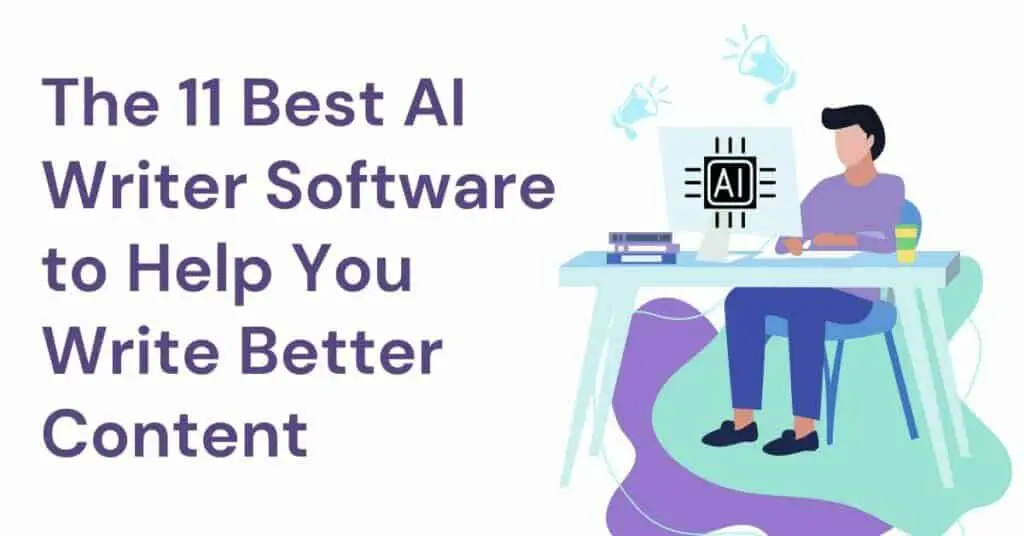Google Search’s Guidance About AI-Generated Content and What It Means for You
Then, most recently in November or December 2022, the introduction of ChatGPT by OpenAI saw a proliferation of the use of AI as a writing tool across the board. There have been concerns that students may use ChatGPT in their essay-writing and plagiarize.
In response, there were tools invented for AI writing detection, and it was unclear whether Google would use such tools to detect and “punish” AI-generated blogs in search rankings.
There has been a lot of fear in the community in recent months among those who use AI tools about the use of AI in blogging and content creation. The fear stems from Google's dislike of using AI-generated blogs in its search engine.
Fortunately, Google has finally come out very clearly about its stance on the issue and provided some useful guidance to help bloggers and creators who use AI tools to create their content.
It did so on February 8, 2023, via its Google Search Central Blog article, “Google Search's guidance about AI-generated content”. In this blog post, I will share what stood out for me and my key takeaways on what it means for us as content creators.
My own experience with AI Writing Tools

I have been leveraging AI tools extensively in my blog writing. I use them for brainstorming, research, grammar checking, fact checking, etc. After studying the Google helpful content update from last August, I am of the view that Google is not against AI-generated blogs but rather spam content. Being an IT graduate, I have always been keen on leveraging new technologies to make our lives better.
Related article
I believe that Google doesn't frown on AI tools. How can it frown on something it relies on heavily and is used by many established news outlets?
What stood out for me from Google Search’s Guidance About AI-Generated Content
What stood out for me from the article are the following excerpts from Google's article:
- “Rewarding high-quality content, however it is produced.
- Our focus on the quality of content, rather than how content is produced, is a useful guide that has helped us deliver reliable, high-quality results to users for years.
- It continues today, including through our ranking systems designed to surface reliable information and our helpful content system. The helpful content system was introduced last year to better ensure those searching get content created primarily for people, rather than for search ranking.
- Using automation—including AI—to generate content with the primary purpose of manipulating ranking in search results is a violation of our spam policies.
- AI has the ability to power new levels of expression and creativity, and to serve as a critical tool to help people create great content for the web.
- We'll continue taking this responsible approach, while also maintaining a high bar for information quality and the overall helpfulness of content on Search.
- As explained, however content is produced, those seeking success in Google Search should be looking to produce original, high-quality, people-first content demonstrating qualities E-E-A-T (experience, expertise, authoritativeness, and trustworthiness).
- FAQ: Will AI content rank highly on Search? Using AI doesn't give content any special gains. It's just content. If it is useful, helpful, original, and satisfies aspects of E-E-A-T, it might do well in Search. If it doesn't, it might not.”
Google’s stance on AI-generated content is clear. Google wants us to create original, high-quality, people-first content that is useful and helpful.
Google also warns against using automation—including AI—to generate content with the primary purpose of manipulating rankings in search results. Finally, Google stresses that it doesn't give any special gains to AI content and that AI content must meet Google’s E-E-A-T criteria to do well in search results.
Thus, Google has made it clear that AI is a powerful tool for creating helpful and useful content, but it also warns against using it for manipulative purposes. As long as you follow Google’s guidelines, you should be able to leverage AI as an effective tool for content creation.
So, don't worry about Google's stance on AI-generated content; use it in a way that Google will approve of, and your content will stand a chance of ranking highly!
Key takeaways on what it means for us as content creators
The following are my takeaways from Google’s stance on AI-generated content:
- To focus your energy on producing high-quality and helpful content leveraging AI tools rather than avoidance of detection by AI detectors.
- Be sure to edit, fact-check and cite your references when writing blog posts (You can use AI tools to help you with this). You should also add your perspective/ point of view and experience to add value to the content you produce.
- Look at AI as a tool and an assistant rather than let it churn out the content wholesale. Be original and creative. Learn how to use the tools better.
- Be careful of tools that claim to help you shortcut and game the system (e.g. spinner, one-click blog post)
- AI-assisted content generation and not mass-produced AI content generation with no quality check.
Related articles
Conclusion on Google Search's guidance about AI-generated content
Google has made it clear that it doesn't frown upon AI-generated content as long as it's useful, helpful, and original. Thus, content creators should focus on producing high-quality and helpful content using AI tools to assist them in their work instead of looking for ways to game Google’s search results.









